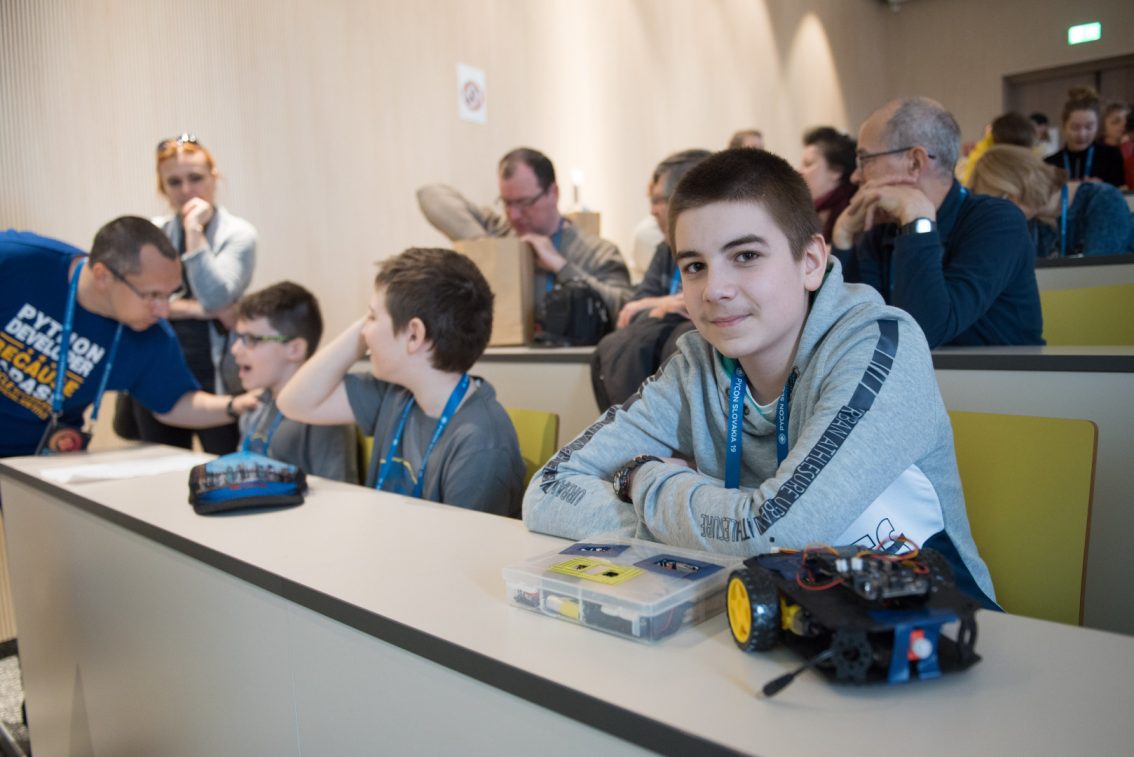We supported 243 schools with grants for purchasing micro:bits
The Telekom Endowment Fund at the Pontis Foundation redistributed almost 229,000 euros in the pilot year of the ST Digital Generation 2020 grant programme. Up to 388 schools from across Slovakia expressed their interest in the grant to purchase a unique set of micro:bit coding tools. The grant programme is part of a larger ENTER project which supports digital education in schools.
The grant programme aims to make the world of digital technologies accessible to pupils of the second stage of primary schools and students of secondary schools in a playful, interesting and interactive form. These tools for teaching coding can be used not only in computer science classes but also in all other subjects due to their practical and variable application.
What projects have we supported?
One of the supported schools is the Primary School in Dolná Mariková. The evaluation committee ranked the idea among the best projects which had applied for the grant. The school succeeded with the project Micro:bit the Friend, which aims to ignite the interest of students in coding. It does so in a playful way and targets the 5th – 9th-grade students. The aim is not only to engage them but also to guide them to choose their future careers in such necessary professions as software engineering and other IT fields.
Students will be introduced to music commands during their music lessons and then code a simple song according to a sample code. In geography classes, they can code a compass or a cube in math class. The project will also include a discussion with Veronika Kornasová, a student of the Faculty of Multimedia Communications at Tomáš Baťa University in Zlín and the Digital Design Studio, to inspire girls to choose these professions, and thus help break down gender stereotypes.
Preparing for life
Sládkovič Primary School in Sliač succeeded with their project entitled A Little:bit. The project will change their school curriculum through technology. The current situation affected by the pandemic highlights the need to learn to solve problems and challenges in their surroundings, community and society. The current curriculum can no longer be oriented towards knowledge, but clearly towards the acquisition of skills such as problem-solving (critical thinking), flexibility, originality, cooperation, communication. “We want to prepare students for life and successful careers. Thanks to technology, our students will learn to solve real problems, develop their project-oriented thinking, experience usefulness and belonging,” the school says.
Micro:bits and the Red Cross
The evaluation committee was also very enthusiastic about the project entitled Rescuers with Micro:bits by the Church Joint School in Humenné. “With the local Red Cross in our biology classes, we use lectures and practical demonstrations to ignite interest in providing first aid. The challenge is to create an intelligent rescue system,” the school writes in the project description. Using micro:bits, teachers plan to create a heart animation with younger students and design a human heart rate monitor and pedometer with older students. During the technical lessons, they will create a rescue button with signalling. Then, they will involve kindergartens in the project to test the functionality of the solution.
We supported primary and secondary schools in all regions of Slovakia as follows:
- Region of Banská Bystrica: 31 schools supported
- Region of Bratislava: 32 schools supported
- Region of Košice: 36 schools supported
- Region of Nitra: 25 schools supported
- Region of Prešov: 31 schools supported
- Region of Trenčín: 29 schools supported
- Region of Trnava: 25 schools supported
- Region of Žilina: 34 schools supported
The ST Digital Generation 2020 grant programme is part of the ENTER project. It is a new platform for the meaningful use of technology, which also includes a unique and globally popular micro:bit project. It is a miniature coding computer, thanks to which children learn the basics of coding in a playful interactive way and, in addition, it helps develop their creativity. At the same time, micro:bit has universal use and, besides informatics, it can also be used in subjects such as biology, chemistry and geography.
The evaluation committee consisted of the following persons:
- Miriam Bachledová
- Magdaléna Bellayová
- Radovan Plánička
- Mirka Uhnák
- Jana Žišková
- Angelika Fogášová
- Tatiana Švrčková
- Barbora Dančová
- Katarína Teglassyová
- Bibiána Kleinová
- Petra Hrnčiarová
- Martin Foltin
- Mária Babušová
- Erik Krajinčák
- Danka Kellerová
- Nika Klimová
- Ľuboš Sibert
- Babora Rusiňáková
- Mark Nemec
- Ondrej Mikuláš
- Eva Judová
- Martin Cápay
- The following persons shall be present at the committee meeting without the voting right:
- Dominika Horňáková, Pontis Foundation
- Eva Mikolajczyková, Pontis Foundation
- Matej Palacka, Pontis Foundation






